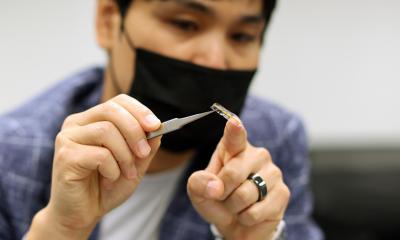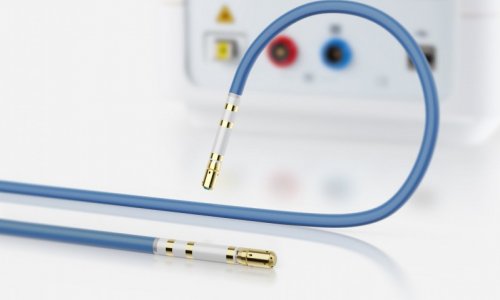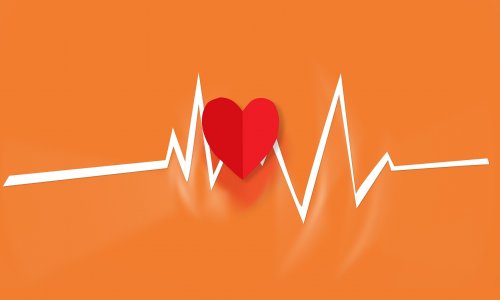First bio-degradable implants repair cardiac defects in children
The Department for Paediatric Cardiology at the University Medical Centre, at Johannes Gutenberg University, in Mainz, has extended its range of services for lower impact treatment
According to the birth register in Mainz, an annual 1.26% of newborns are diagnosed with congenital heart defects, making these the most common malformation.
Left untreated they lead to limited quality of life and shorter life expectancy. Up to a few years ago, the only remedy was complex surgery. However, today many congenital heart defects can be treated with minimally invasive, cardiac catheter technologies, most often with the help of implants. Since 2007, the Paediatric Cardiology Department at the University Medical Centre Mainz, has used the first biologically degradable implant system for this. Advantages result from the gentler, minimally invasive intervention, successful repair of the defect, and then the decomposition of the implant, when, at the same time, the body’s natural healing response replaces the material with its own tissue.
Originally, implants available to repair cardiac septum defects were made from non-absorbable materials. Complete embedding into the body’s own tissue achieved an occlusive function after only a few months and then made the implant itself redundant. However, as the material cannot degrade and remains in place, it can have side effects for the growing body, such as chronic body irritation, an increased risk of blood clots or even fatigue fractures of the metal parts.
The new implant system is only temporary; following its absorption and incorporation into the tissue, it almost completely disintegrates. This is particularly suitable for children with a small- to-medium-size ASD II (atrial septal defect) and for adults with a PFO (persistent foramen ovale). However, these PFOs are often only discovered when the causes of strokes or migraines are being investigated.
At the paediatric department, congenital heart defects have been treated with catheter technologies for over 10 years. In that period, more than 1,500 of procedures performed have eliminated open heart surgery. This includes defects of the cardiac septum. Over 400 patients underwent a minimum invasive defect repair. Led by Professor Christoph Kampmann, head of the department for congenital heart defects at the University’s Paediatric Clinic has successfully used the first available, biologically degradable implant system since December 2007.
‘For more than 30 years there have been attempts to repair atrial septal defects minimally-invasively with catheter technology. The new implant system is the first that almost entirely degrades following successful repair. This constitutes a breakthrough in the field of cardiac catheter technologies,’ Prof. Kampmann pointed out.
30.04.2008





